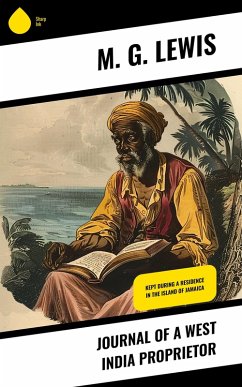In "Journal of a West India Proprietor," M. G. Lewis presents a compelling narrative that intertwines autobiography and social commentary. Written in the early 19th century, the book captures the complexities of colonial life in the Caribbean from the perspective of a British plantation owner. Through a series of reflective entries, Lewis elucidates the economic, moral, and environmental dilemmas experienced in the West Indies, employing a poignant and engaging literary style that blends Observational realism with passionate prose. This text serves not only as a personal account but also as a representation of the broader tensions and contradictions inherent in colonial enterprise, making it a vital commentary on the era's ethical landscapes. Lewis himself was deeply enmeshed in the colonial world, having been born into a wealthy British family that owned plantations. His first-hand experiences on the islands provided him with a unique lens through which to scrutinize the socio-political implications of colonialism, slavery, and land ownership. The nuances of his perspective reveal an internal conflict, marking him as a significant figure in discussions about the moral responsibilities of colonizers. This book is highly recommended for readers interested in colonial studies, post-colonial literature, or historical ethics. Lewis's engaging narrative not only illuminates the personal struggles of a plantation owner but also invites critical reflection on the broader ramifications of colonial exploitation, making it a vital addition to the library of any conscientious scholar.
Dieser Download kann aus rechtlichen Gründen nur mit Rechnungsadresse in A, B, BG, CY, CZ, D, DK, EW, E, FIN, F, GR, HR, H, IRL, I, LT, L, LR, M, NL, PL, P, R, S, SLO, SK ausgeliefert werden.









